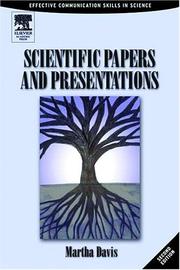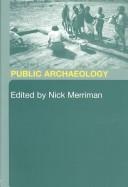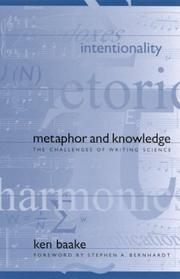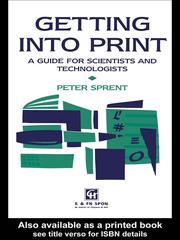| Listing 1 - 10 of 51 | << page >> |
Sort by
|
Book

ISBN: 3902936371 3903122327 Year: 2015 Publisher: Innsbruck : innsbruck university press,
Abstract | Keywords | Export | Availability | Bookmark
 Loading...
Loading...Choose an application
- Reference Manager
- EndNote
- RefWorks (Direct export to RefWorks)
Ever since digital technologies became widespread, the increasing capacities of storing, exchanging and sharing of information have given rise to optimistic scenarios of an egalitarian information society as well as to pessimistic views of a technocratic surveillance society. Educationalists have pointed out both chances for opening up and enhancing education and also tendencies of stupefaction, problematic power relations, or memory decline. Philosophers have eulogized or censored superficiality, social scientists have focused on networks as agency, the IT industry has made immediate availability a paradigm of development. Questions of archiving have often been overlooked, addressed within a conservative criticism of new media, or considered as a symptom of the historical disease at last to be left behind. Yet all of these approaches fail to do justice to the contemporary social, political, cultural and educational questions regarding the possibilities of digital archives. In the past few years manifold initiatives aiming at opening up education on various levels using digital communications technologies and Creative Commons licenses as well as massive open online courses (moocs) have been developed. Today, Open Educational Resources (OER) is widely used as an umbrella term for free content creation initiatives, OER Commons, Open Courseware (OCW), OER repositories, OCW search facilities, University OCW initiatives, and related activities. Among others, collections of shared resources such as Connexions, WikiEducator or Curriki have an ever-increasing number of visitors and contributors to the site. Just recently, an effort has been made with a view to mapping the landscape of institutional OER initiatives by the UNESCO/Commonwealth of Learning (COL) Chair. Against this background, this publication focuses on ongoing dynamics and transformational processes at the interfaces of OER initiatives and issues of digital archiving.
Media, information & communication industries --- Medien --- Bildung --- Digitale Archivierung
Book
ISBN: 1443859443 9781443859448 9781443843744 1443843741 Year: 2016 Publisher: Newcastle upon Tyne, UK
Abstract | Keywords | Export | Availability | Bookmark
 Loading...
Loading...Choose an application
- Reference Manager
- EndNote
- RefWorks (Direct export to RefWorks)
Communication. --- Communication --- Collection Information, communication. --- Social aspects. --- Communication and culture --- Communication, Primitive --- Mass communication --- Sociology

ISBN: 0120884240 9786611023218 1281023213 0080525210 9780120884247 9780080525211 6611023216 Year: 2005 Publisher: Burlington, Mass. Academic Press
Abstract | Keywords | Export | Availability | Bookmark
 Loading...
Loading...Choose an application
- Reference Manager
- EndNote
- RefWorks (Direct export to RefWorks)
Electronic publishing and electronic means of text and data presentation have changed enormously since the first edition was first published in 1997. This second edition applies traditional principles to today's, modern techniques. In addition to substantial changes on the poster presentations and visual aids chapters, the chapter on proposal writing discusses in more detail grant writing proposals. A new chapter has also been dedicated to international students studying in the United States.Selected Contents:-Searching and Reviewing Scientific Literature-The Graduate Thesis
Communication of technical information. --- Technical writing. --- Communication in technology --- Technical communication --- Technical information, Communication of --- Communication in science --- Engineering --- Science --- Scientific writing --- Technology --- Authorship --- Communication of technical information
Book
ISBN: 1760462136 1760462128 Year: 2018 Publisher: ANU Press
Abstract | Keywords | Export | Availability | Bookmark
 Loading...
Loading...Choose an application
- Reference Manager
- EndNote
- RefWorks (Direct export to RefWorks)
A popular fascination with fame and stardom has existed in Western culture since the late eighteenth century; a fascination that, in the twenty‑first century, reaches into almost every facet of public life. The pervasive nature of stardom in modern society demands study from the perspectives of a range of distinct but thematically connected disciplines. The exploration of intersections between broader considerations of stardom and the discourses of popular music studies is the genesis for this volume. The chapters collected here demonstrate the variety of work currently being undertaken in stardom studies by scholars in Australia. The contributions range from biographical considerations of the stars of popular music, contributions to critical discourses of stardom in the industry more broadly, and the various ways in which the use of astronomical metaphors, in both cultural commentary and academic discourse, demonstrate notions of stardom firmly embedded in popular music thought. Not only do these chapters represent a range of perspectives on popular music, stars and stardom, they provide eloquent and innovative contributions to the developing discourse on stardom in popular music.
Beyoncé, --- Criticism and interpretation. --- Knowles, Beyoncé, --- Music --- Popular culture --- Media, information & communication industries --- Popular music --- Rock music --- stardom --- popular culture --- Australia --- Barcelona --- Beyoncé --- Jazz --- Motown --- Saddington
Periodical
Abstract | Keywords | Export | Availability | Bookmark
 Loading...
Loading...Choose an application
- Reference Manager
- EndNote
- RefWorks (Direct export to RefWorks)
foundations of quantum mechanics --- quantum optics and metrology --- quantum information: communication --- cryptography --- Quantum theory --- Quantum dynamics --- Quantum mechanics --- Quantum physics --- Physics --- Mechanics --- Thermodynamics --- Quantum theory.

ISBN: 0415258898 9780415258890 0203646053 9780203646052 9780415258883 041525888X 9786610052929 6610052921 9781134513420 1134513429 9781134513376 1134513372 9781134513413 1134513410 041525888X 0203686454 9780203686454 1280052929 9781280052927 Year: 2004 Publisher: London Routledge
Abstract | Keywords | Export | Availability | Bookmark
 Loading...
Loading...Choose an application
- Reference Manager
- EndNote
- RefWorks (Direct export to RefWorks)
This much-needed volume scrutinises in detail the relationship between archaeology, heritage and the public. Featuring case studies from around the world.

ISBN: 0791486745 1417531347 9781417531349 0791457435 9780791457436 0791457443 9780791457443 9780791486740 Year: 2003 Publisher: Albany : State University of New York Press,
Abstract | Keywords | Export | Availability | Bookmark
 Loading...
Loading...Choose an application
- Reference Manager
- EndNote
- RefWorks (Direct export to RefWorks)
Metaphor and Knowledge offers a sweeping history of rhetoric and metaphor in science, delving into questions about how language constitutes knowledge. Weaving together insights from a group of scientists at the Santa Fe Institute as they shape the new interdisciplinary field of complexity science, Ken Baake shows the difficulty of writing science when word meanings are unsettled, and he analyzes the power of metaphor in science.
Technical writing. --- Engineering --- Science --- Scientific writing --- Technology --- Authorship --- Communication of technical information --- Communication of technical information. --- Communication in technology --- Technical communication --- Technical information, Communication of --- Communication in science

ISBN: 0585447861 1280109513 1135823715 9786610109517 0203475003 9780585447865 9780203475003 9780419192206 0419192204 0419192204 9781135823665 9781135823702 9781135823719 9781138475878 1138475874 1135823707 Year: 1995 Publisher: London New York E & FN Spon
Abstract | Keywords | Export | Availability | Bookmark
 Loading...
Loading...Choose an application
- Reference Manager
- EndNote
- RefWorks (Direct export to RefWorks)
This is a practical and comprehensive guide to all aspects of writing about science and technology, including both `how to write' and the practical and commercial aspects of publishing as they affect an author. Special features of technical writing are discussed in detail. It also gives special attention to problems facing writers of instruction manuals in catering for users with a wide range of technical backgrounds.
Technical writing. --- Communication of technical information. --- Communication in technology --- Technical communication --- Technical information, Communication of --- Communication in science --- Engineering --- Science --- Scientific writing --- Technology --- Authorship --- Communication of technical information
Periodical
ISSN: 09764658 Year: 2008 Publisher: Delhi : Defence Scientific Information & Documentation Centre, Defence Research & Development Organisation, Ministry of Defence,
Abstract | Keywords | Export | Availability | Bookmark
 Loading...
Loading...Choose an application
- Reference Manager
- EndNote
- RefWorks (Direct export to RefWorks)
Library science --- Information science --- Bibliothéconomie --- Sciences de l'information --- Periodicals. --- Périodiques --- Communication of technical information --- Communication of technical information. --- Communication in technology --- Technical communication --- Technical information, Communication of --- Communication in science
Periodical
Abstract | Keywords | Export | Availability | Bookmark
 Loading...
Loading...Choose an application
- Reference Manager
- EndNote
- RefWorks (Direct export to RefWorks)
Communication of technical information --- Communication in science --- Kennis. --- Maatschappij. --- Technologie. --- Communication in science. --- Communication of technical information. --- Communication in technology --- Technical communication --- Technical information, Communication of --- Communication in research --- Science communication --- Science information --- Scientific communications --- Science --- Knowledge. --- Society.
| Listing 1 - 10 of 51 | << page >> |
Sort by
|

 Search
Search Feedback
Feedback About UniCat
About UniCat  Help
Help News
News